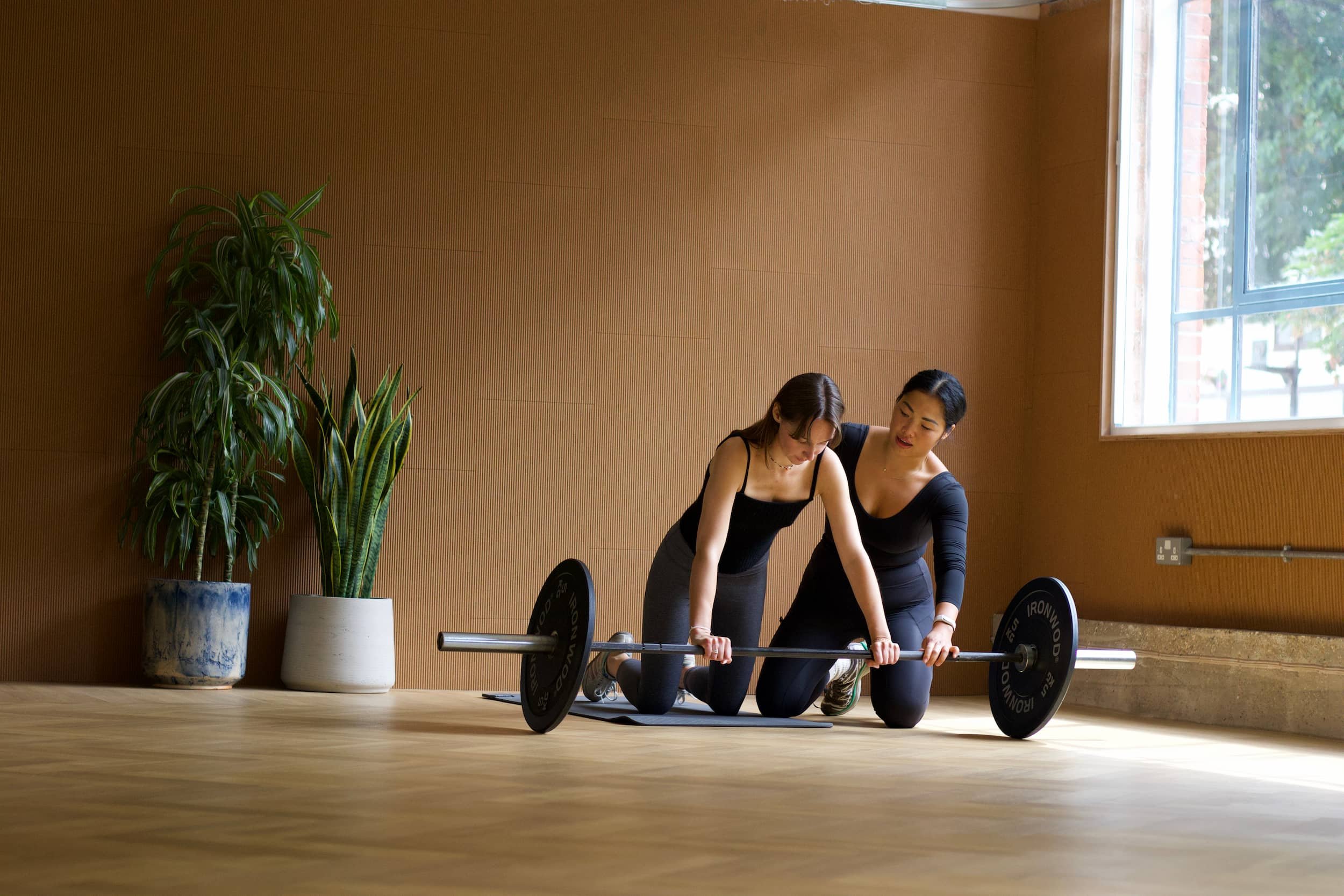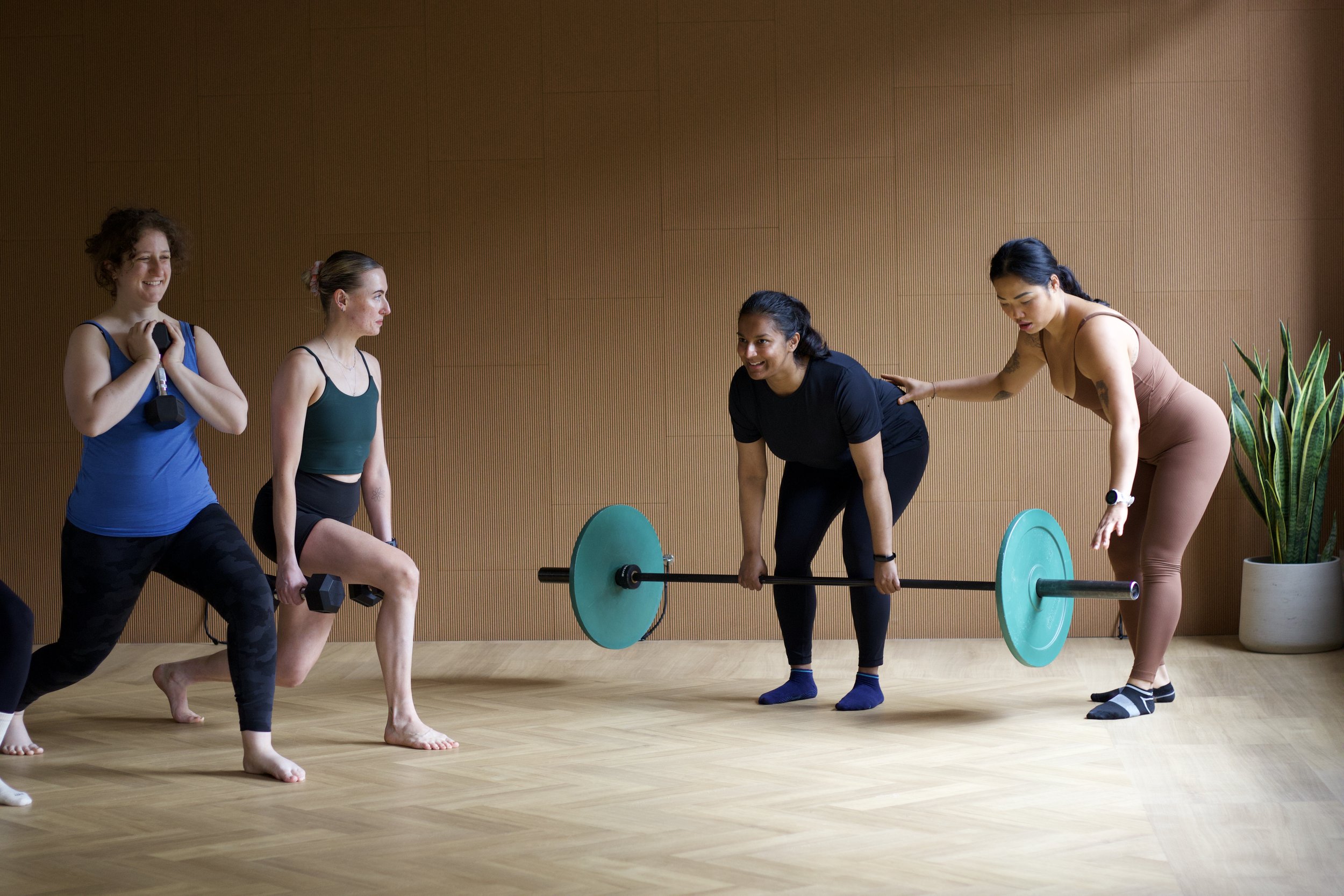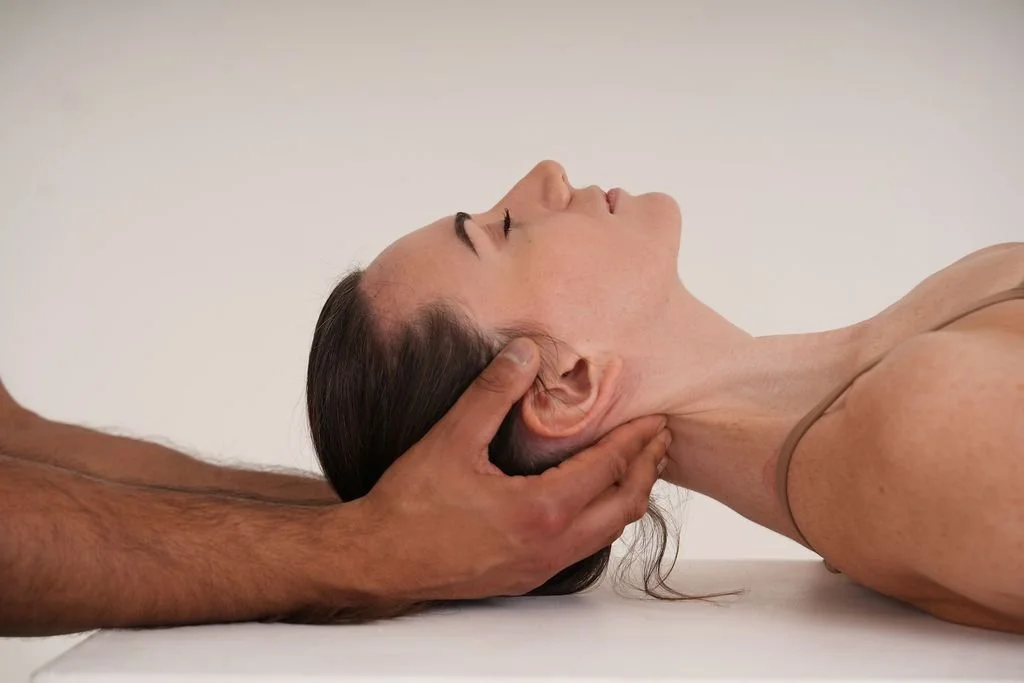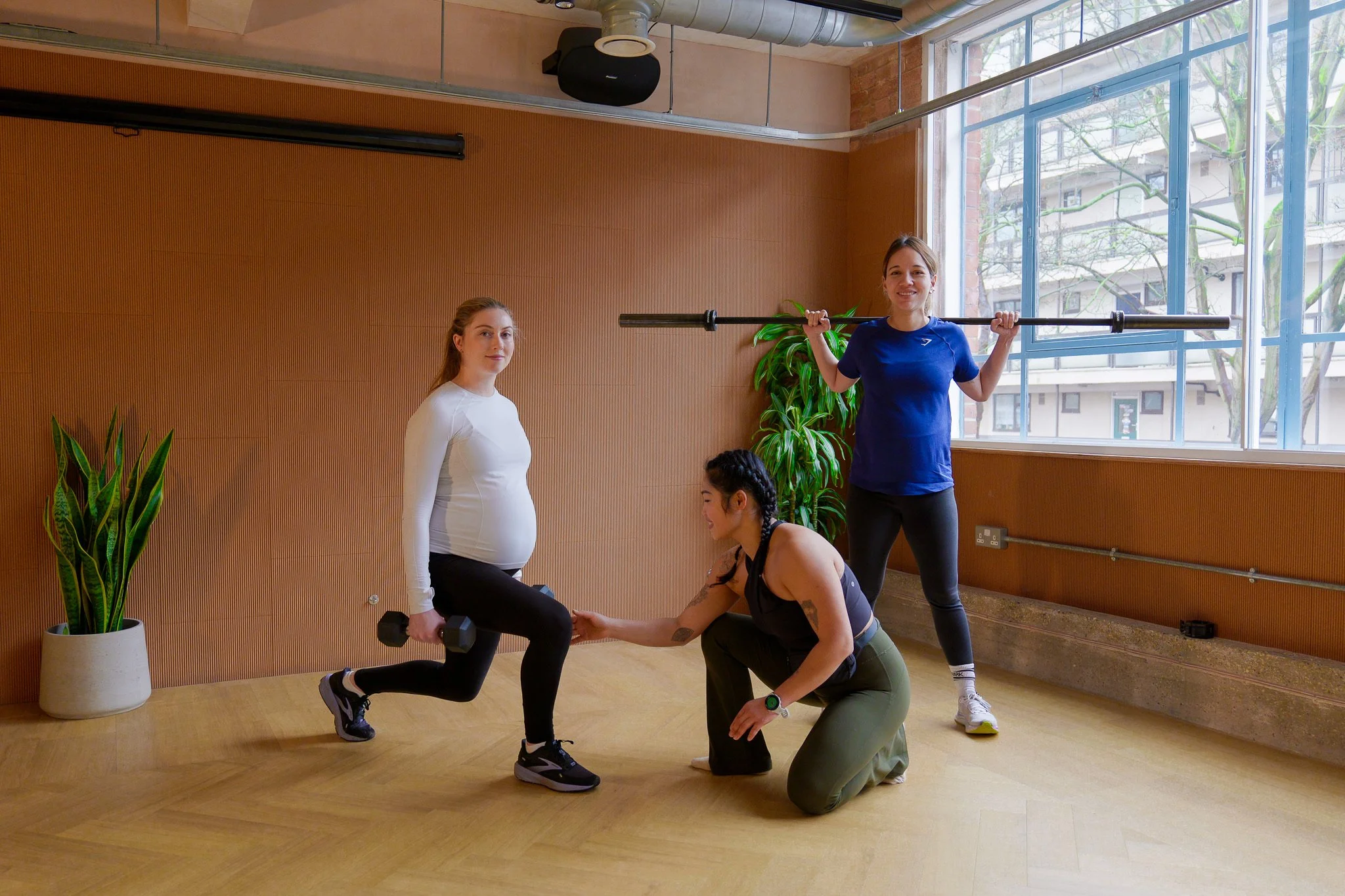
Personal Training During
The Menopause in Islington
Menopause Personal Trainers in London
The last few years have seen an increased media focus on the menopause and menopausal symptoms. Unfortunately though, this has also made some personal training companies exploit an advertising opportunity without the knowledge or service to back it up.
At Dr stretch, we do things differently. When we say we can provide outstanding personal training for people who are going through peri-menopause, menopause, or post-menopause stages, it means we have considered every practical and scientific factor and built a personal training service around them.
You’ll almost certainly see and feel differences in the way your body and brain works during the stages of the menopause. From a dedicated fitness programme and nutritional support right through to private training facilities, we’ve got everything you need to reduce menopause symptoms and feel your best.
Specialist pregnancy trainer qualifications
Private, impeccable studios and great gym equipments
1-1 personal training and women only 4 -1 semi private training that’s bespoke to you and your experience
The best PTs in London and Islington
Dr Stretch
The benefits of using a private gym in Islington
Don’t like big open studios or public gyms? Neither do we. If you value personalised attention, high-quality facilities, and a specialised atmosphere, a private boutique gym could be a worthwhile investment in your fitness journey.
No waiting for equipment, no changing your routine to work around others, and no feeling of being watched while you exercise.
We Understand The Menopause
At whatever age it begins, menopausal clients are going through changes that are completely unique – not occurring at any other time of life. To get the most out of personal training, it’s extremely important that you work with a personal trainer who understands these changes.
There’s no generic fitness class approach here. When you come to our boutique studios, we’ll create a personalised programme that makes a real difference.
For some people, that means resistance training, body weight exercises, and mobility-focused activities. For others, it can mean focusing on high-intensity interval training or exploring the benefits of strength training.
Some of the changes you’ll potentially experience during the menopause can take a toll on on your physical and mental well-being.
On a longer-term physiological level, this means differences in lean muscle mass, bone density, some weight gain and changing risk factors around illnesses – but on a here-and-now level, it can mean sleepless nights, changing moods, hot flushes, and even problems with memory and concentration.
We understand – and when you train with Dr stretch, we work fluidly around the way you feel during every session.
Your personal trainer will always be able to adapt your training around the way you feel, even on a moment-to-moment basis. You’ll always feel like you’ve worked out – but you’ll never feel like you’re not understood or not perfectly catered for.
Adaptability That Keeps Up With You
SEE OUR MEMBERS RESULTS
No Membership Fees
As a client, you do not pay ongoing membership fees — you pay for the sessions you use and nothing more.
This means you’ll always get outstanding value for money – and you can adjust your sessions up and down as required so they fit perfectly around your life and schedule.
You can even share the sessions you’ve paid for with a spouse, family member, colleague or friend too.
What Happens at a Personal Training Consultation?
When you get in touch with us, we’ll call or email to arrange a free, no-obligation online consultation.
During your consultation, you’ll get a tour of the studio, and your personal trainer will chat with you about your goals. We’ll carry out a detailed movement assessment and a professional body composition scan – helping to identify strengths and potential weaknesses. From there, your coach will produce a 100-day plan explaining exactly what your sessions will involve.
It’s the perfect opportunity to see if you feels like a good fit for your life.
FAQs
-
Our experience tells us that some strength training can be enormously beneficial for people who want to manage symptoms of the menopause. Don’t worry though, that doesn’t mean we expect you to be an Olympic power lifter!
Instead, we’d typically start with some low intensity strength exercises – focusing movement and technique, rather than heavy weights.
In time, you and your personal trainer might discuss adding weight to your programme – not least because building lean muscle mass is one of the very best ways to deal with unwanted body fat.
If you’d like to read more about this subject, check out our blog: Strength Training During the Menopause.
-
We’re not professional nutritionalists – but we do have a very good understanding of how different foods and eating habits can impact your health. In fact, we’ve put together a detailed blog about Diet and Macronutrients
Typically, we’d chat with our clients about the kinds of foods that would help with their goals – and if you decide to use our online training app, you’ll be able to link food, calorie, and macronutrient diary apps like MyFitnessPal for your personal trainer to see and advise around.
We also know some meal prep delivery services that you may wish to use. They usually have registered nutritionists onboard who we can work with to help you achieve your goals.
-
Yes, as part of a well-thought-through PT programme, cardio exercise can help to avoid or deal with any weight gain you might be worried about. This is especially true of HIIT (high-intensity interval training) – which promotes quick weight loss and toned muscles.
In fact, cardio exercise has a range of benefits beyond just helping to manage your weight and body fat levels – including lowering the risk of heart disease and helping to even out some of the ‘mood swings’ you might experience as a part of depression and stress.
We’ve explored the benefits of cardio training in our dedicated blog post: 5 health benefits of cycling
-
Exercise is one of the very best ways to encourage your body to produce ‘feel good hormones’ called endorphins. The best bit is, these hormones tend to stick around for much longer than your PT session – so lots of people find that exercise really helps with their general feeling of well-being throughout day-to-day life.
Of course, exercise isn’t a cure-all when it comes to mental well-being and mental health – some people find talking therapies like cognitive behavioural therapy (CBT) and other similar approaches to help deal with the stresses and strains that the menopause can bring.
Virtually all medical professionals will agree that exercise can help to change the way you feel – but if you feel like you need additional help, it’s always a good idea to chat with your GP about what else can be done to support your mental well-being.
Check out our blog on: Sports massage for stress
-
According to numerous academic studies, exercise actually complements the effectiveness of hormone replacement therapy (HRT) and visa-versa.
One Australian study found that muscle performance, muscle mass, and muscle composition were improved by HRT – and concluded that the benefits of HRT combined with physical training may exceed the benefits of HRT alone.
In another study, HRT was shown to result in reductions in leg fat mass and body fat percentage – with no adverse effects on peoples’ ability to effectively exercise.
Of course, it’s always important to talk to your GP about exercise and any medication you’re taking. If you do, we’re more than happy to share information about your workout plan.
-
Yes, a training programme for someone who is either approaching, going through, or moving beyond the menopause would typically involve exercises designed to strengthen the pelvic floor muscles. These exercises are sometimes called ‘Kegels’.
Changes to your hormone levels and muscles approaching and during menopause can impact the effectiveness of muscle tissue – sometimes leading to urogynaecological problems and other symptoms that can effect your overall quality of life.
Of course, pelvic floor exercises are just one part of keeping your pelvic floor muscles healthy – so it’s always a good idea to see your doctor if you’re experiencing any discomfort – but most health professionals will agree that the right kind of exercise can help.
WELLNESS BLOG
Dr stretch personal training packages
Our programmes are designed to fit around your personal schedule and tailored to your needs goals, setting you up for long-term success.
The prices are dependent on the number of sessions you would like to train per week.
As we offer monthly payment plans, all our personal training plans below are based on a one month duration minimum.
Intro session
-
£85/ Session
Joint Session Price ( 2 people)
£115/ session
-
One to one
£70/ session
Joint Session Price ( 2 people)
£90/ session
4 sessions a month
-
One to One Personal Training
£80/ Session ; £320/ Month
Joint Personal Training Session Price ( 2 people)
£110/ Session; £440/ month
Price is per session. You still need to pay for the whole package upfront.
-
One to one
£70/ session
Joint Session Price ( 2 people)
£90/ session
8 sessions a month
-
One to One
£58/ Session ; £464/ Month
Joint Session Price (2 people)
£75/ Session; £600/ month
Price is per session. You still need to pay for the whole package upfront.
-
One to One Personal Training
£60/ Session ; £240/ Month
Joint Personal Training Session Price ( 2 people)
£80/ Session; £320/ month
Price is per session. You still need to pay for the whole package upfront.
12 sessions a month
-
One to one Personal Training
£70/ Session ; £840/ Month
Joint Personal Training Session Price ( 2 people)
£100/ Session; £1140/ month
Price is per session. You still need to pay for the whole package upfront.
-
One to One Personal Training
£55/ Session ; £660/ Month
Joint Session Price ( 2 people)
£72/ Session; £864/ month
Price is per session. You still need to pay for the whole package upfront.



















